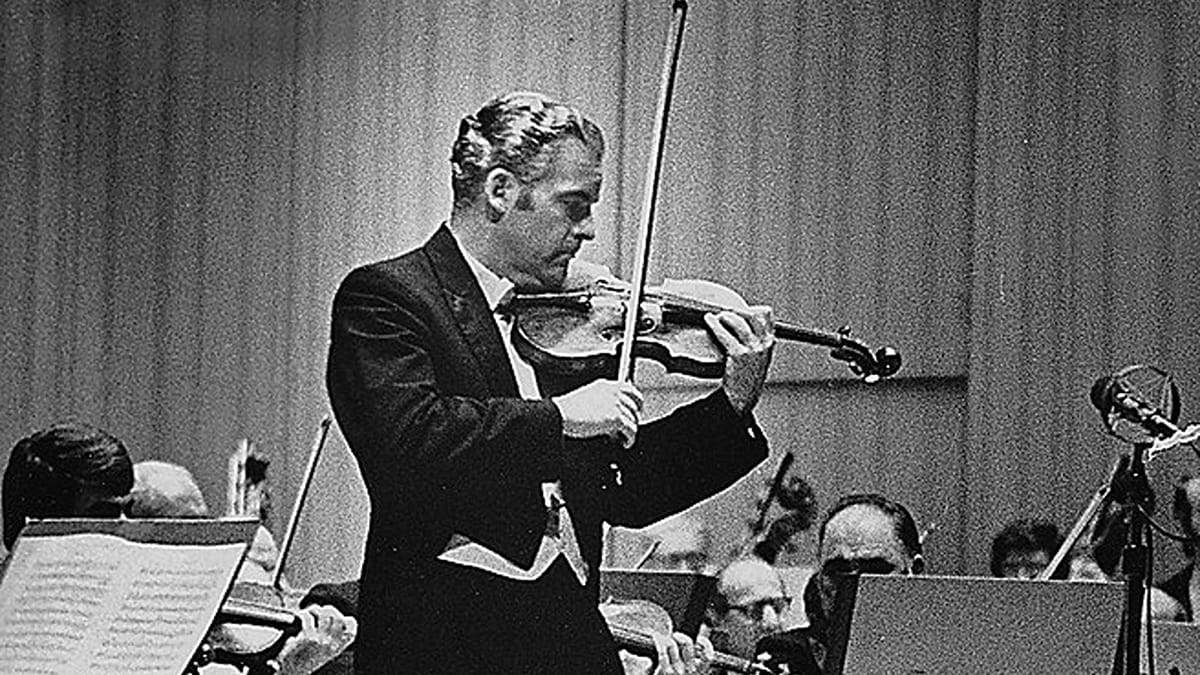Remembering Norman Carol

Norman Carol, the legendary American violinist and concertmaster of the Philadelphia Orchestra from 1966 to 1994, passed away on April 28 in Wynnewood, Pennsylvania. He was 95.
Born in Philadelphia to Russian immigrant parents, Carol began playing the violin at age six, and performed his first concert at nine. Following initial studies with Sascha Jacobinoff, he entered the Curtis Institute of Music at 13, where he was a student of Efrem Zimbalist. Serge Koussevitzky heard the 17-year-old Carol perform Édouard Lalo’s Symphonie Espagnole with the Tanglewood Orchestra, and invited him to join the first violin section of the Boston Symphony. Carol’s New York debut came in 1949 at Town Hall. While serving in the military during the Korean War, Carol performed in the 6th Army Band alongside such musicians as Chet Baker, André Previn, and Arthur Fiedler. In the 1950s, he served as concertmaster of the New Orleans Symphony, and the Minneapolis Symphony,
During his 29 year tenure as concertmaster of the Philadelphia Orchestra, Norman Carol performed under music directors Eugene Ormandy, Riccardo Muti, and Wolfgang Sawallisch. According to a statement released by the Philadelphia Orchestra,
He soloed with the Orchestra nearly every season, performing everything from Bach, Vivaldi, Mozart, Beethoven, Brahms, and Bruch to Nielsen, Harrison, Britten, Bernstein, Jarrett, and Skrowaczewski (a concerto commissioned for, and dedicated to, him), among many others. Norman’s passing is the end of an era in our history.
Paul Arnold, a 36-year veteran of the Orchestra’s violin section, adds,
It was easy to be impressed with the ‘macro’ Norman Carol … he was dashing, comfortable, even swashbuckling as a leader. His playing was bold, expressive, and hall-filling. He brought with him a treasure trove of life experiences in music that added both authenticity and bottomless resource to his leading and his persona. … He soloed with brilliance, aplomb, and enormous variety of repertoire … he went on to personally embody the ‘Philadelphia Sound’ as our orchestra’s leader. But, in so many ways, it was the ‘micro’ aspects of Norman’s personality as both a human being and leader that made his legacy so indelibly imprinted in the minds of those of us who were so lucky to work with him. He was a great concertmaster because he was a great leader of people, a great diplomat, a direct and unrelenting defender of tradition and reason. … I will always miss Norman’s impact on my life in the Orchestra, and his unique and character-filled way of defining our traditions. But I will also miss all the wonderful details that glow like a comet trail from just being around a great legend … and a really great guy.
Kreisler: Liebesleid
Norman Carol’s glowing, bel canto approach to sound can be heard in this recording of Fritz Kreisler’s Liebesleid (“Love’s Sorrow”) with pianist, Julius Levine:
Telemann Concerto for Violin, Trumpet, and Strings
This concert performance, recorded on June 10, 1968, features Carol and principal trumpeter Gilbert Johnson with Eugene Ormandy and the Philadelphia Orchestra:
Nielsen: Concerto for Violin and Orchestra, Op. 33
In this concert broadcast, Carol delivers a fiery, virtuosic performance of Nielsen’s Violin Concerto. Hungarian conductor István Kertész leads the Philadelphia Orchestra:
Vaughan Williams: Fantasia on a Theme by Thomas Tallis
The distinctive, richly opulent Philadelphia string sound, cultivated by Leopold Stokowski and continued by Ormandy, is evident in this recording of Ralph Vaughan Williams’ Fantasia on a Theme by Thomas Tallis. The performance features solos by Carol, along with violist Joseph De Pasquale and cellist Samuel Mayes:






